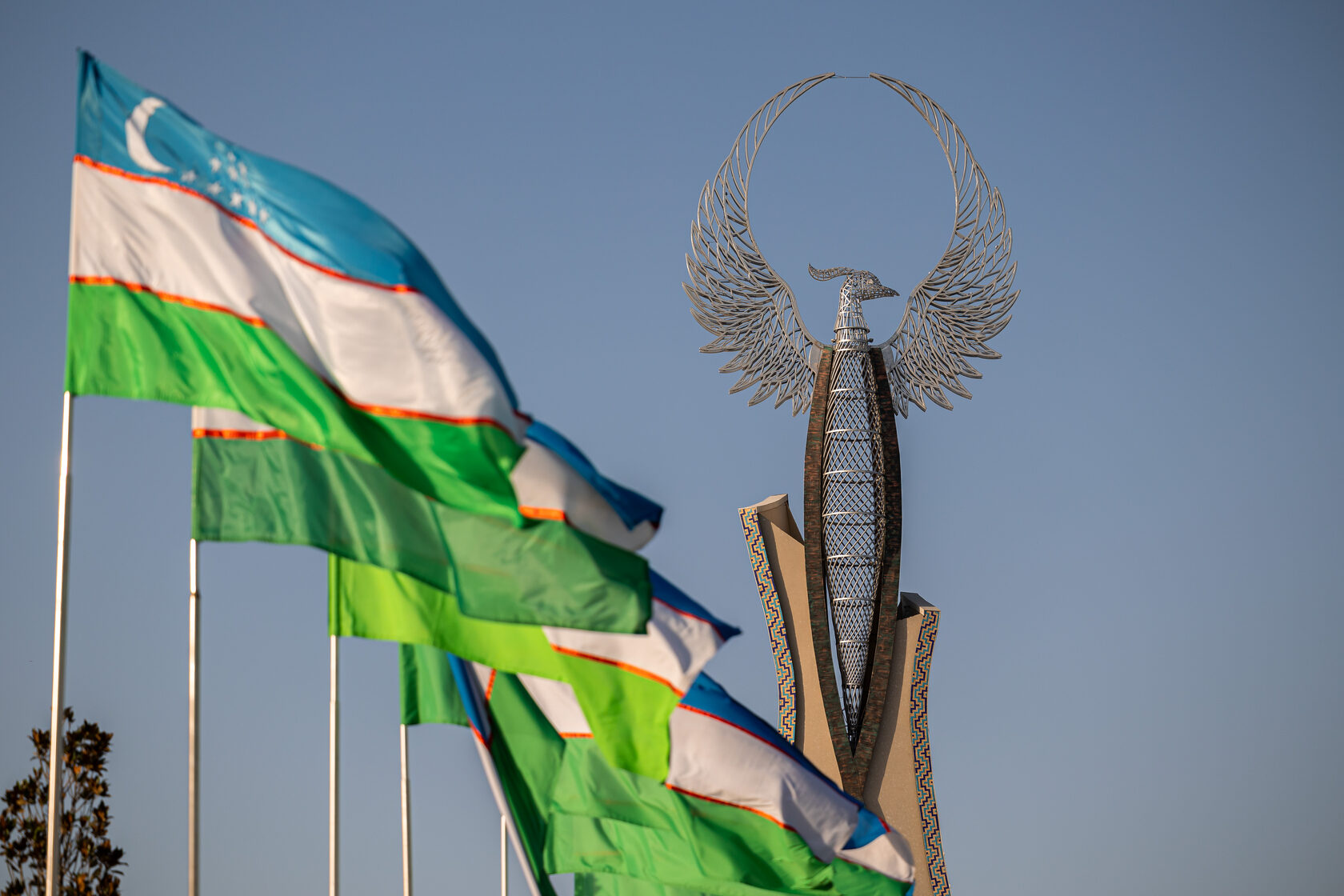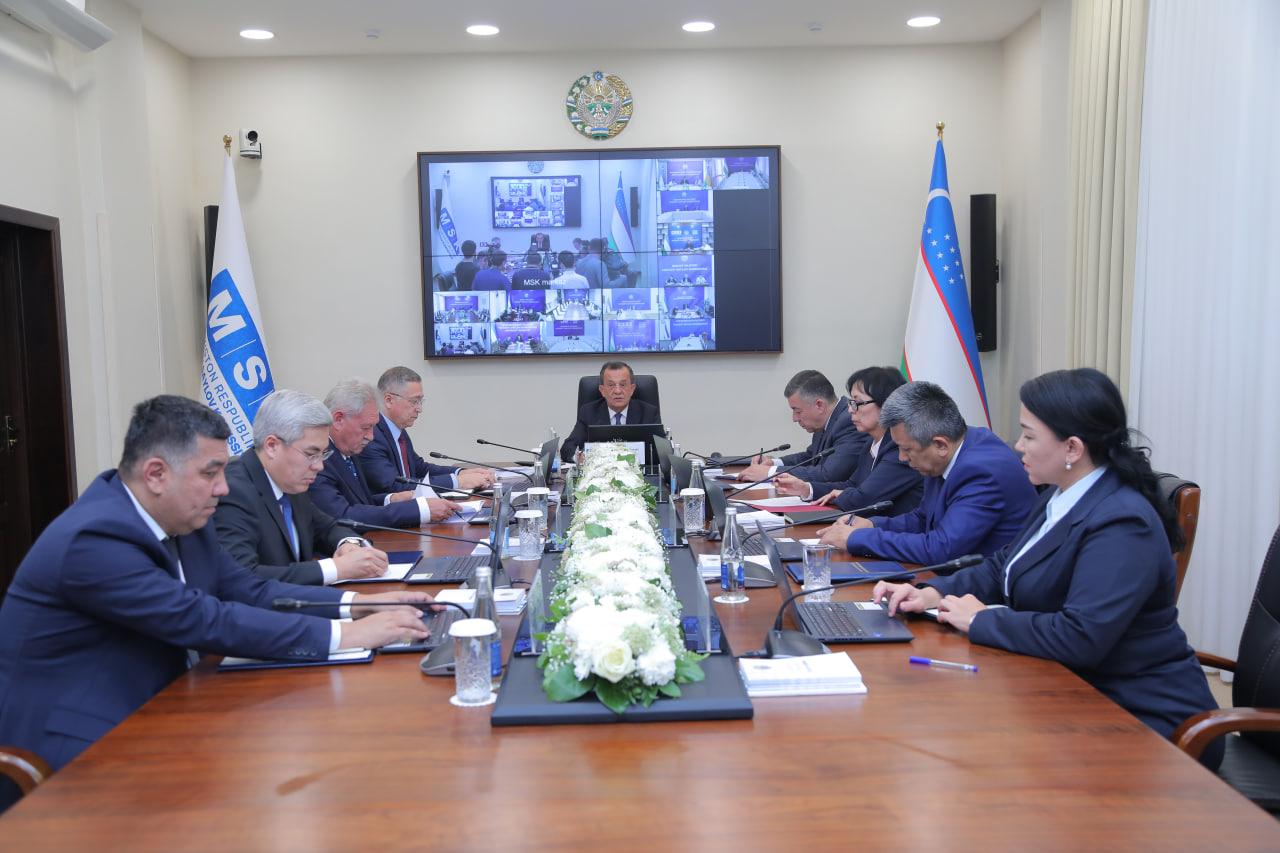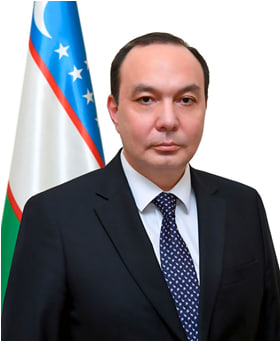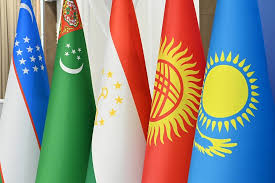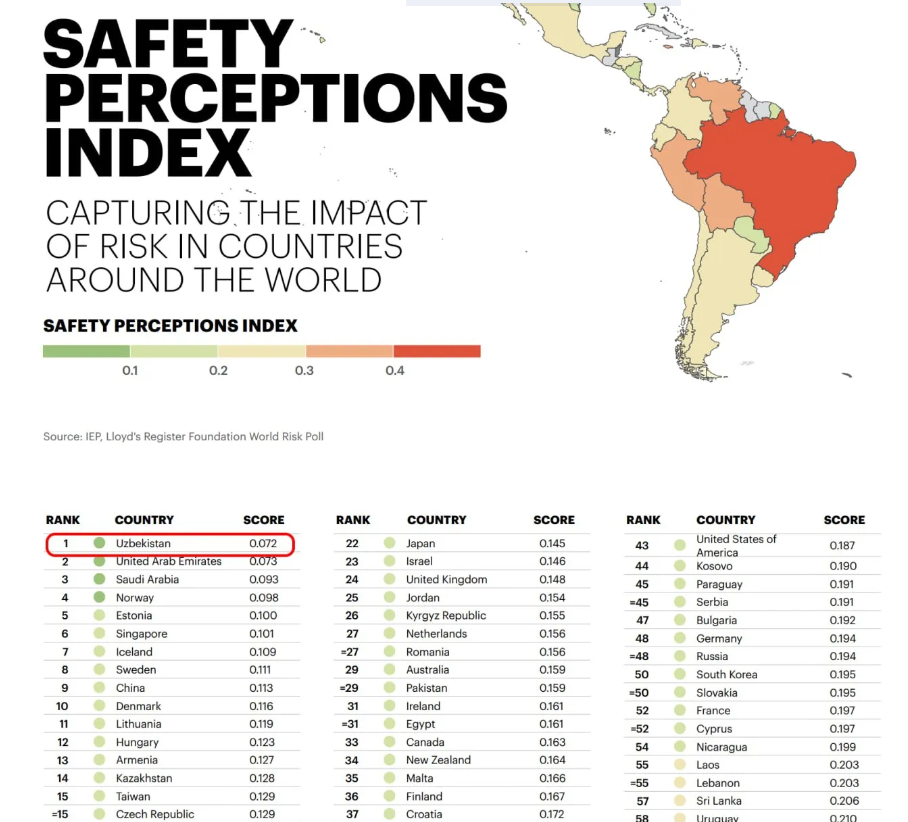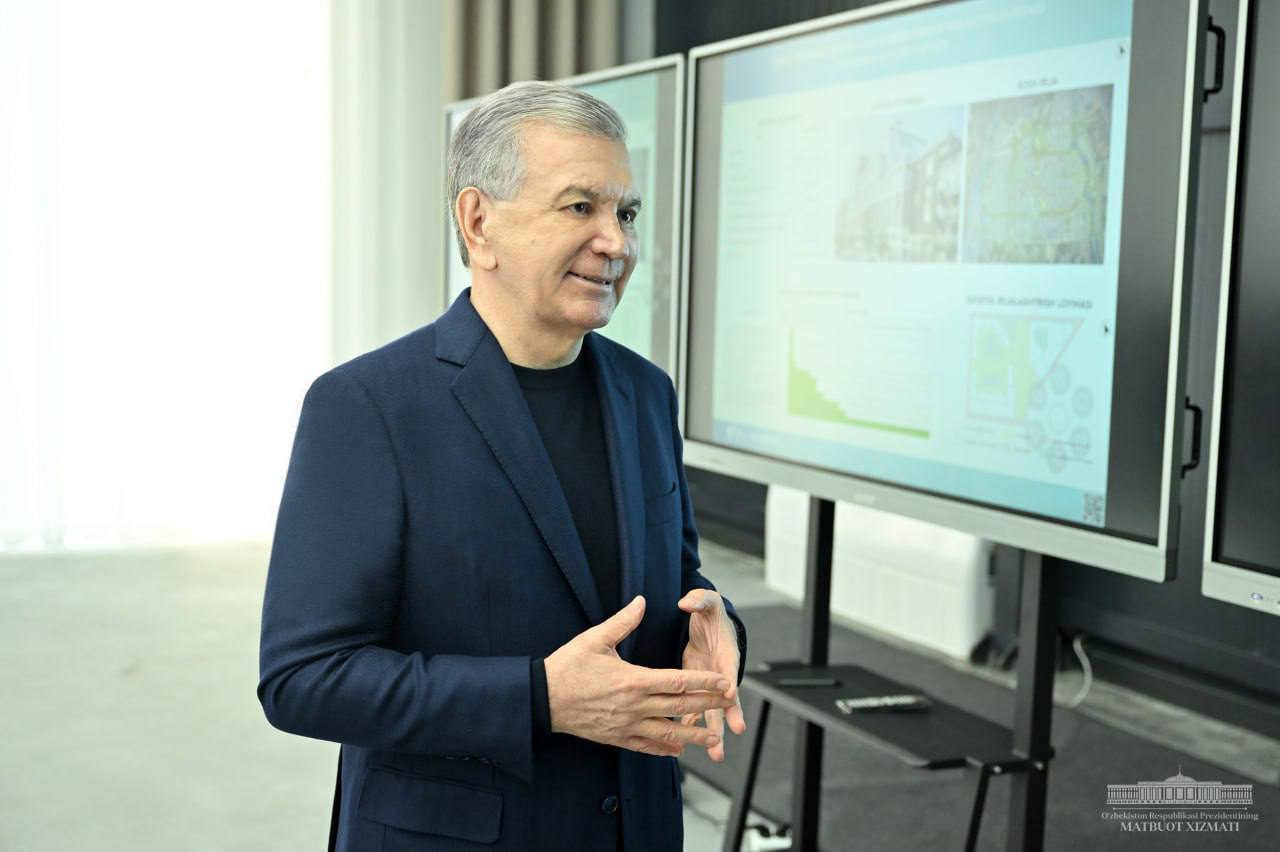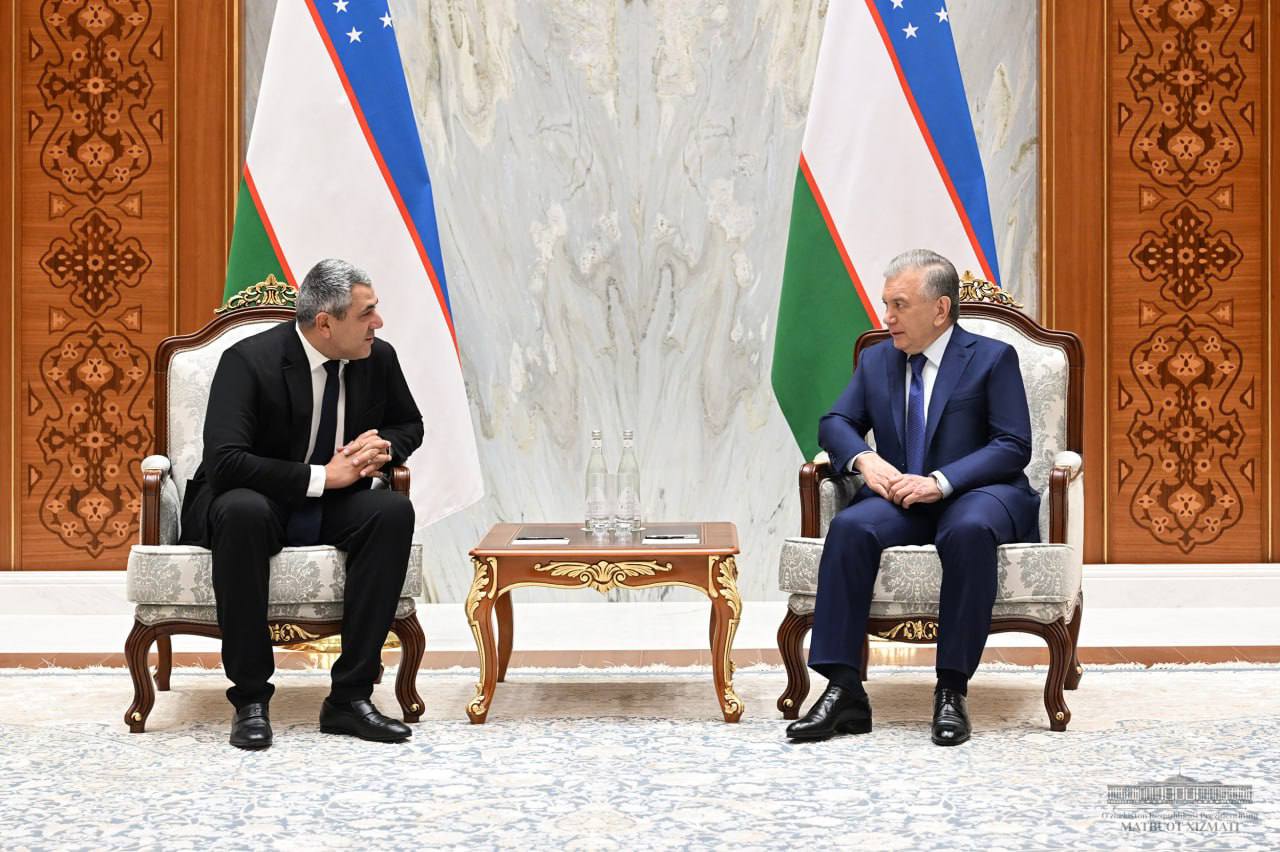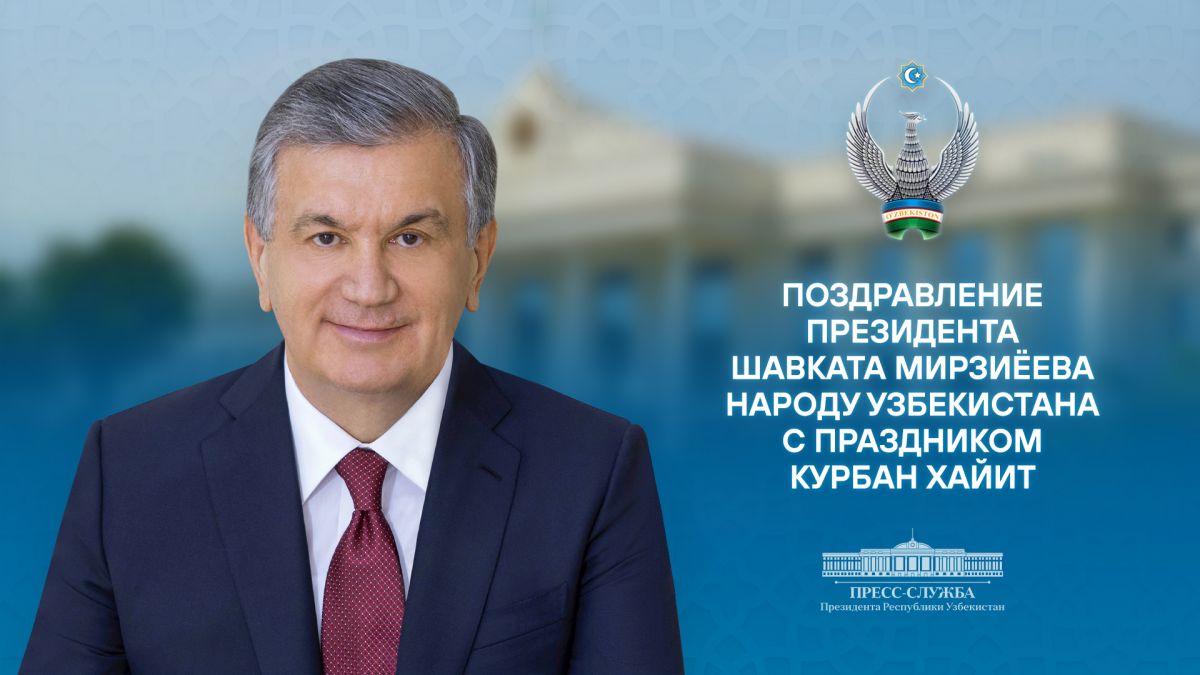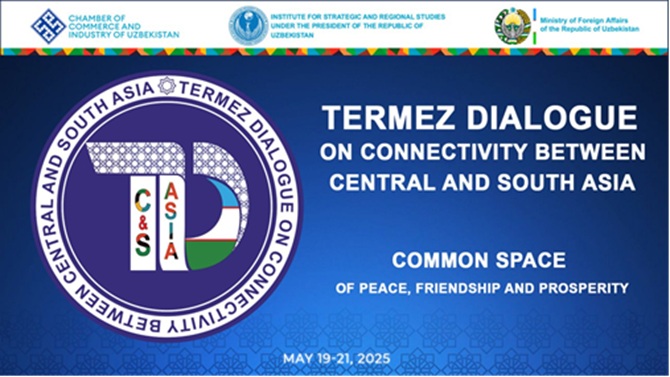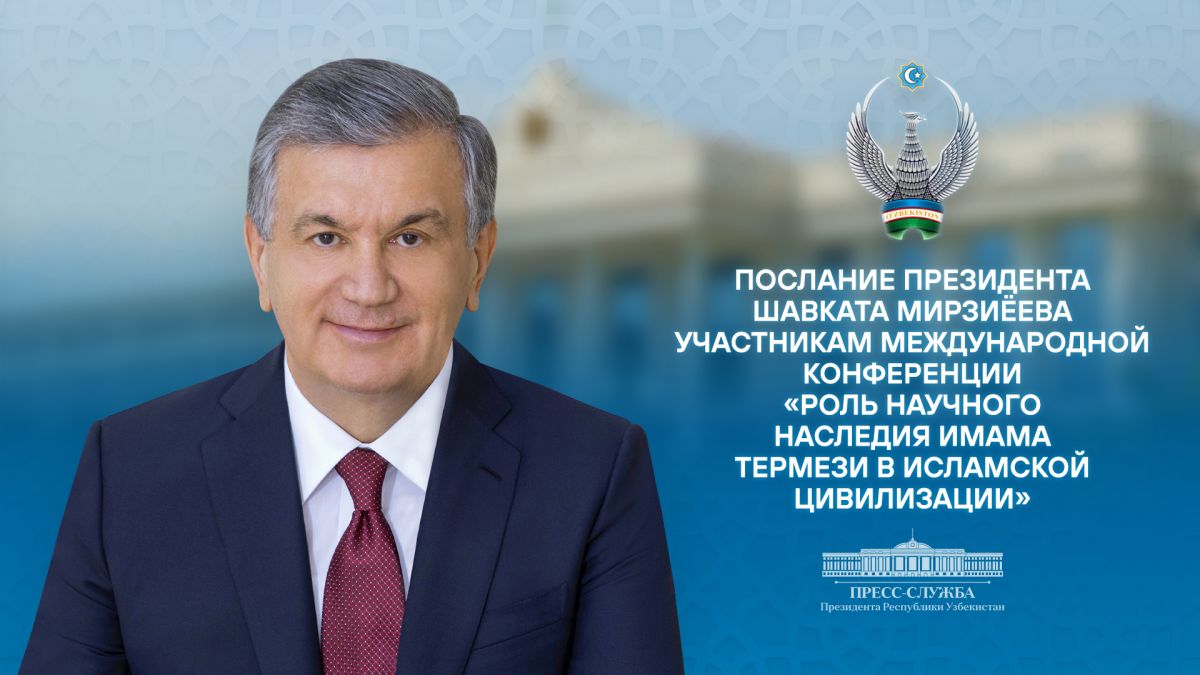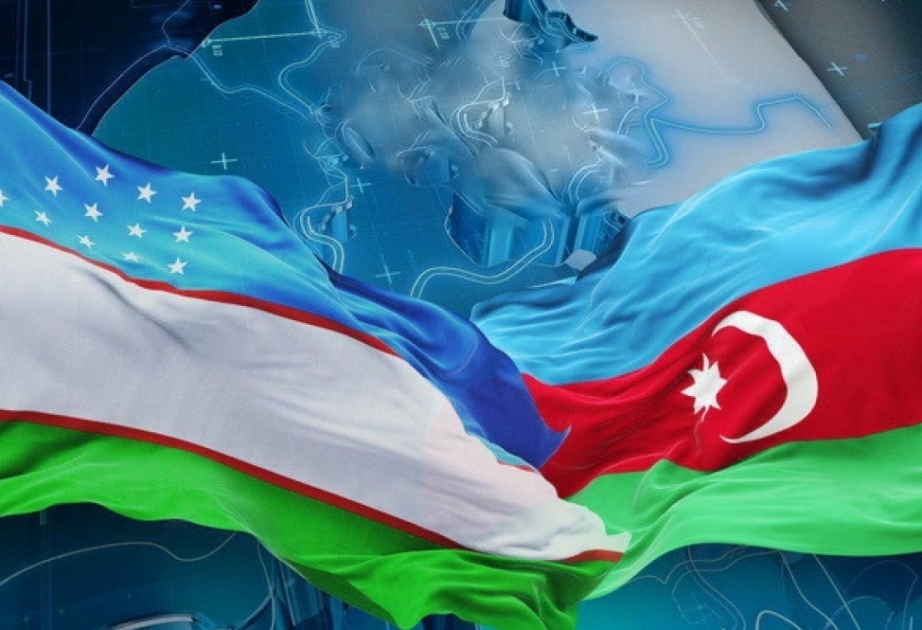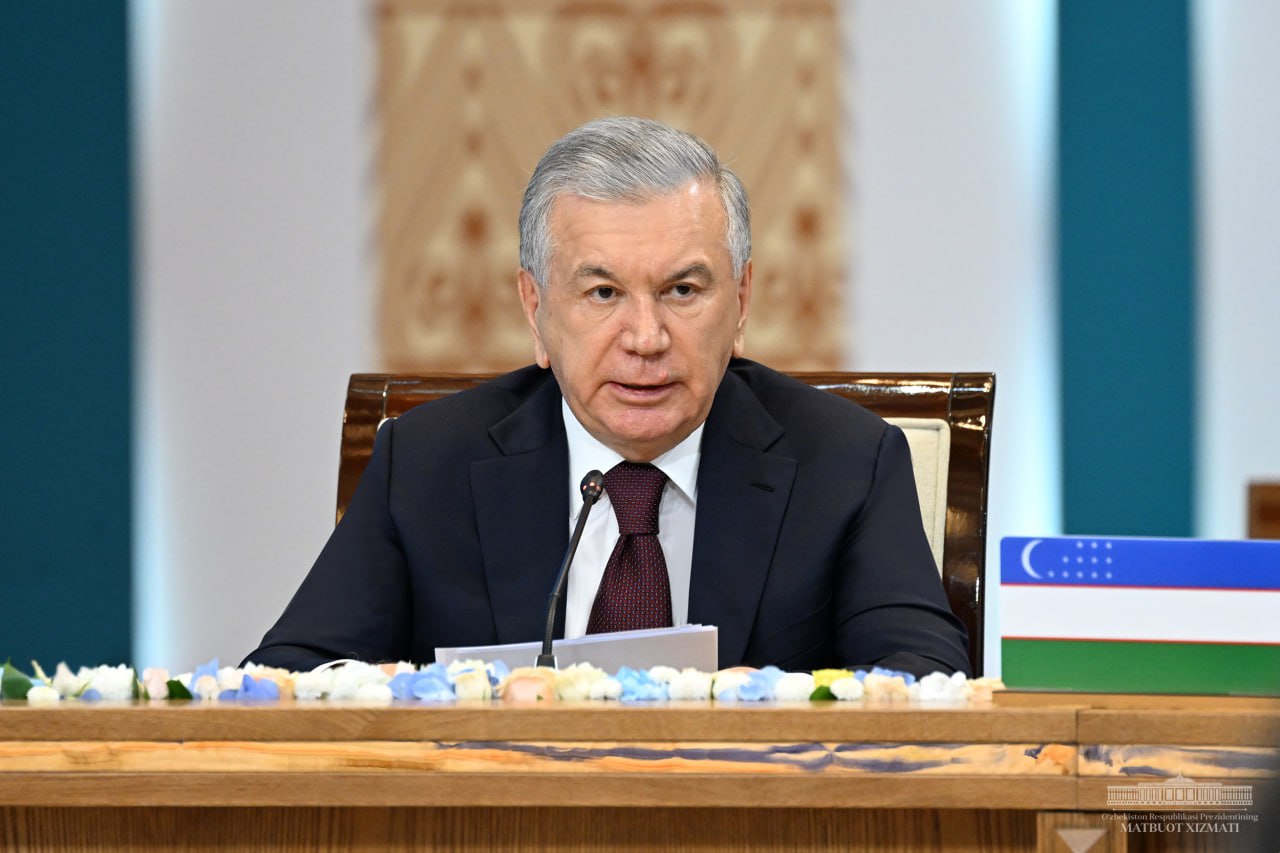Phone
Consular Issues
Phone
Uzbekistan news
We recommend
The awakening lion: the era of renewal
📅 20.08.2024
Hey, great Turan, land of lions!
What has become of you? What are these days you endure now?
Oh, glorious cradle of Genghis, Timur, Oghuz, and Attila!
Where have the esteemed seats you once held gone?..
Abdurauf Fitrat
An American politician once said of the current life and fate of the Central Asian region: ‘They are neither post-Soviet nor post-communist countries now’.
Today no specialist knowledge is needed to understand this idea, which suggests that such labels are outdated in the research community. For example, ten to fifteen years ago the political behaviour of Central Asian societies – neighbours for thousands of years – was prone to national separatism, mutual dislike and latent hostility, but today they have undergone a remarkable transformation. Ideologues and ordinary Central Asians only a couple years ago endeavoured to prove their superiority, their antiquity and, for these very reasons, their greater belonging to the historical and cultural heritage of the region. Though they still might hurl some sharp insults at each other, now they have become united neighbours.
Every day we see and hear of events that illustrate this unity and provide concrete evidence of it. Meanwhile, as already noted, some latent and outdated policies of these neighbouring countries towards each other still attempt to turn the common cultural heritage of the region into a language of hatred.
As a result of Soviet nationalisation and post-Soviet ideologisation, these five states in the Eurasian centre, the land that once founded great empires and was famous throughout the world, unfortunately turned away from one another after gaining independence. This, in turn, allowed the region to remain a geopolitical object for the modern world’s empires.
At this moment, I do not intend to delve into the geopolitical picture of the region and its current situation. I would like to share my brief thoughts on the bold steps and the international image of what Uzbek leadership is calling ‘New Uzbekistan’. The country is transforming day by day and now has the ability to directly influence regional processes.
These joyful events have made me take up my pen.
True, some may argue, “Well, the President has repeatedly participated in meetings in this format, and our athletes have delivered victories commensurate with those from other countries. What’s the big deal?”
But I also have a question for such people: When did the world powers take Uzbekistan, which will soon be celebrating thirty-three years of independence, so seriously? When have this country and its long-suffering people been recognised as independent subjects of international politics? When did our country’s representative reach thirteenth place in a set of international competitions in which athletes from more than two hundred countries took part? When was the anthem of Uzbekistan played eight times at such prestigious competitions? When was our flag raised thirteen times over the winners' podium? And when else did we hear that ‘Uzbek athletes have no equal in the world!’?
Of course, no one will be able to contradict me when I say that these two factors are the worthy fruit of the hard work of our country’s president Shavkat Mirziyoyev.
I would like to say a few words about the meetings in Kazakhstan. The details of this visit vividly demonstrated the results of Mirziyoyev’s changes in regional policy, which he put into place eight years ago.
The first meeting of the Interstate Supreme Council, which took place 7-9 August 2023, was cochaired by Mirziyoyev and President of the Republic of Kazakhstan Kassym-Jomart Tokayev.
This was the first time in our history that the leaders of these two Central Asian states have met to agree on multifaceted supranational cooperation, which is recognised by the world community and international experts as one of the main locomotives of international affairs in the modern world. In the past, despite supranational general concepts such as ‘Central Asia’, ‘regional unity’ or the substanceless slogan ‘Turkestan is our common home’, the identity of the region as a whole has remained extremely blurred. The actions of Kazakhstan and Uzbekistan, the two main powers in the region, towards this end are an important step in transforming these previous abstractions into a concrete plan. We will talk about this a little later, but for now let us focus on the first meeting of the Interstate Council.
The visit hosted meetings of the Intergovernmental Commission and the Business Council, as well as a business forum, political consultations, a think tank forum and intellectual games. The organizers of the meetings also organised cinema days and other cultural events to strengthen the unity of Central Asian peoples in cultural terms as well as economic and political.
One of the most significant events of these meetings was the adoption by the leaders of the two countries of the Programme for Strategic Partnership and Allied Cooperation for 2024-2034. This document undoubtedly marks the beginning of a new stage in Uzbek-Kazakh relations of friendship and good neighbourliness.
Economic relations between the two parties have already reached record highs in recent years. As a result of previous meetings, such as economic forums and business meetings of the parties, solid agreements worth $7 billion were signed.
‘We have opened a new chapter in our multifaceted relations – we have held the first meeting of the Supreme Interstate Council. This format is an expression of the highest level of interstate cooperation and clearly demonstrates the close ties between our countries and peoples and their firm desire to strengthen cooperation in all areas,’ Mirziyoyev said at the meeting.
Of course, this unprecedented level of cooperation between the two countries did not go unnoticed by the world community and international experts. Analysts and think tanks commented widely on the details of the visit. In particular, Roy Anthony Rogers, Deputy Director of the Asia and Europe Institute at the University of Malaya (Malaysia), outlined his observations as follows:
‘Thanks to the strong historical ties and personal friendship between the leaders of Uzbekistan and Kazakhstan, the current state of Uzbek-Kazakh relations is characterised by special dynamics, a high level of mutual understanding and trust. I believe that this visit of the president of Uzbekistan to Kazakhstan is of historic significance not only for the peoples of the two countries, but also for the prosperity of the entire Central Asian region.’
Praising Uzbekistan’s policy of regional cooperation, Nasri Al Saadi, Managing Partner of Premium Construction (Qatar), focuses in his article on the sincere actions of the neighbouring countries:
‘The two leaders are committed to uniting the region and coordinating efforts through consultative meetings and the Central Asia Plus platforms, which are becoming increasingly popular mechanisms for international cooperation. They actively support each other on global and regional political issues’.
Of course, my aim is not to summarise or comment on the opinions of foreign analysts on this historic meeting. My intention is to tell you about the activities of Mirziyoyev, who is striving with equanimity and wisdom to achieve his goal of transforming Uzbekistan’s previous isolation into regional openness and is achieving great success. After all, I am always proud to be a contemporary and compatriot of a person who has glorified and continues to glorify the name of the Uzbek people and Uzbekistan.
Sheikh ul-Islam Allahshukur Pashazadeh, Chairman of the Caucasus Muslim Board, said in a recent interview with the Uzbek media that ‘Mr Mirziyoyev’s personality today has become a force that influences not only the socio-political life of Uzbekistan, but also the region’.
This fact continues to manifest itself in other examples. For instance, our president personally initiated the Consultative Meeting of Central Asian States, which has attracted great interest in international politics today.
His initiative was widely welcomed by the international community, and the first meeting was held in Astana on 15 March 2018. The recent meeting of the leaders of the five Central Asian states in Astana, Kazakhstan, marked the beginning of a new cycle of this format.
Although this is not the main focus of today’s article, I must make a comment. I believe I understand the goal Mirziyoyev had in mind when he first initiated this recurring set of meetings 7-8 years ago. The goal is to unite our peoples, to heal the wounds caused by Soviet modernization, to awaken the ‘lion’ that once fell into a deep slumber.
At this most recent meeting, such political appeals as ‘regional integration,’ ‘regional identity’ were put forward with the sincerity that was so often lacking in previous years.
‘Given our common cultural and historical heritage’, Mirziyoyev stated, ‘we must pay great attention to strengthening the ownership, solidarity and shared responsibility of our peoples for the future of the region’.
I believe that the early launch of the international media platform ‘History and Culture of Central Asia: One Past and Common Future’ will be an important practical step in this direction.
In order to further strengthen mutual understanding and solidarity among the peoples of the region, we propose to hold a scientific forum devoted to practical aspects of regional identity formation.
If one takes a closer look at the expression ‘regional identity’ in this quote, you will see that this term essentially encompasses not only geographical, political, economic, but also cultural aspects of the region. This is a bold step towards restoring the region’s lost soul – a shared identity after years of Soviet rule.
The two high honours awarded to the President of our country in Kazakhstan – the Altın Qıran (Golden Eagle) Order of the of the Republic of Kazakhstan and the Badge of Honour of the Heads of the Central Asian States – attest to Mirziyoyev’s melting of the ice between the peoples and states of the region and his restoration of the warm friendship and love inherited from our ancestors.
This is undoubtedly a vivid example of the policy initiated and pursued by president Mirziyoyev in the region, full of kindness and sincerity.
III
Of course, our success at Olympic Games in Paris continues to warm our hearts. These victories have become the heart, pride and honour of New Uzbekistan. Remember that only yesterday our country, which was looked down upon as ‘colonial’ or ‘post-colonial’ and whose name was only mentioned in passing at international meetings, showed the world its presence.
In addition to placing 13th in the gold medal count at the Olympics, Uzbekistan garnered 4th place in Asia and 1st place among the Turkic, Muslim and CIS countries. Three of our athletes were also honoured with the high title of “Two-Time Olympic Champion.”
One might say that the achievements of our country today seem special to us only because we are Uzbek citizens. But no, these are international recognitions that the country has not achieved in centuries. The accomplishments of our country today, the creative power of Mirziyoyev, have not been overlooked from the outside. For example, well-known historian, ethnologist and anthropologist of Central Asia Sergey Abashin, expressed his impression of Uzbekistan’s performance at the Olympics on his social media pages as follows:
‘The Paris-2024 Olympic Games were an extremely important event. They will be remembered not for the discussion of gender and artistic issues, but above all for the remarkable results of athletes from Central Asian countries, and in particular from Uzbekistan, which won 8 gold medals and finished 13th (I would like to remind you that in addition to their Olympic successes, Uzbek chess players have been ranked high in the world rankings in recent years). In sport, we are witnessing the emergence of Central Asian countries as major players, recognised and acknowledged worldwide, and becoming aware of their subjectivity. This is a real historical change in the world and in the post-Soviet space, still a long and certainly natural process.’
Abashin here remarks that Uzbekistan’s successes in sport today show that it is becoming a known entity on the world stage. Frankly, this means that the country no longer needs a mediator – such as ‘former Soviet state’ or ‘site of a former US base for Afghanistan’ – to understand its position in the world.
In conclusion, I would like to say that these two place-setting events for Uzbekistan of the past month promise only further bright moments ahead, express the determination of New Uzbekistan, and the innovative path of its leader, president Mirziyoyev.
Qudratilla Rafiqov,
political scientist
Representatives of foreign organizations were accredited to observe the elections
📅 25.09.2024
On 23 September this year, a regular meeting of the Central Election Commission was held to discuss the accreditation of observers from abroad and from international organizations, as well as the organization of the activities of the Instant Information Center.
The interest of foreign countries and international organizations in the elections to the representative bodies of state power, which will be held this year in accordance with the updated electoral legislation, is extremely high.
In particular, it is expected that more than 1,000 international and foreign observers will participate in observing the elections, particularly about 400 from 50 countries, about 500 from 21 international organizations such as the Commonwealth of Independent States, the Office for Democratic Institutions and Human Rights of the Organization for Security and Cooperation in Europe, the Shanghai Cooperation Organization, the Organization of Turkic States and another 60 from the election commissions of 26 foreign countries.
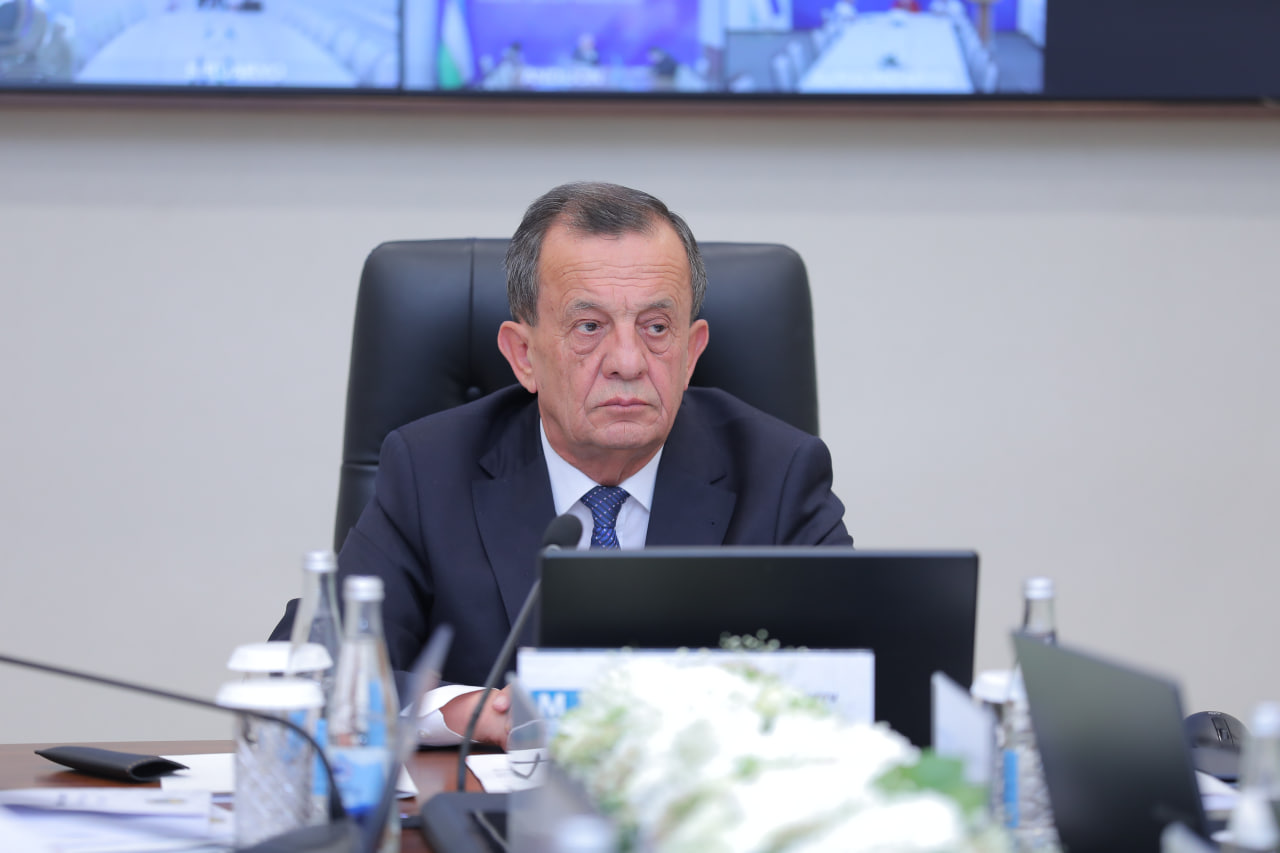
It should be noted that the Office for Democratic Institutions and Human Rights of the Organization for Security and Cooperation in Europe intends to participate in the observation of the elections in Uzbekistan with a comprehensive mission consisting of a core group, long-term and short-term observers, about 350 observers in total.
The great interest of foreign states and international organizations in the elections in Uzbekistan testifies to the international community's recognition of the democratic reforms being carried out in our country.
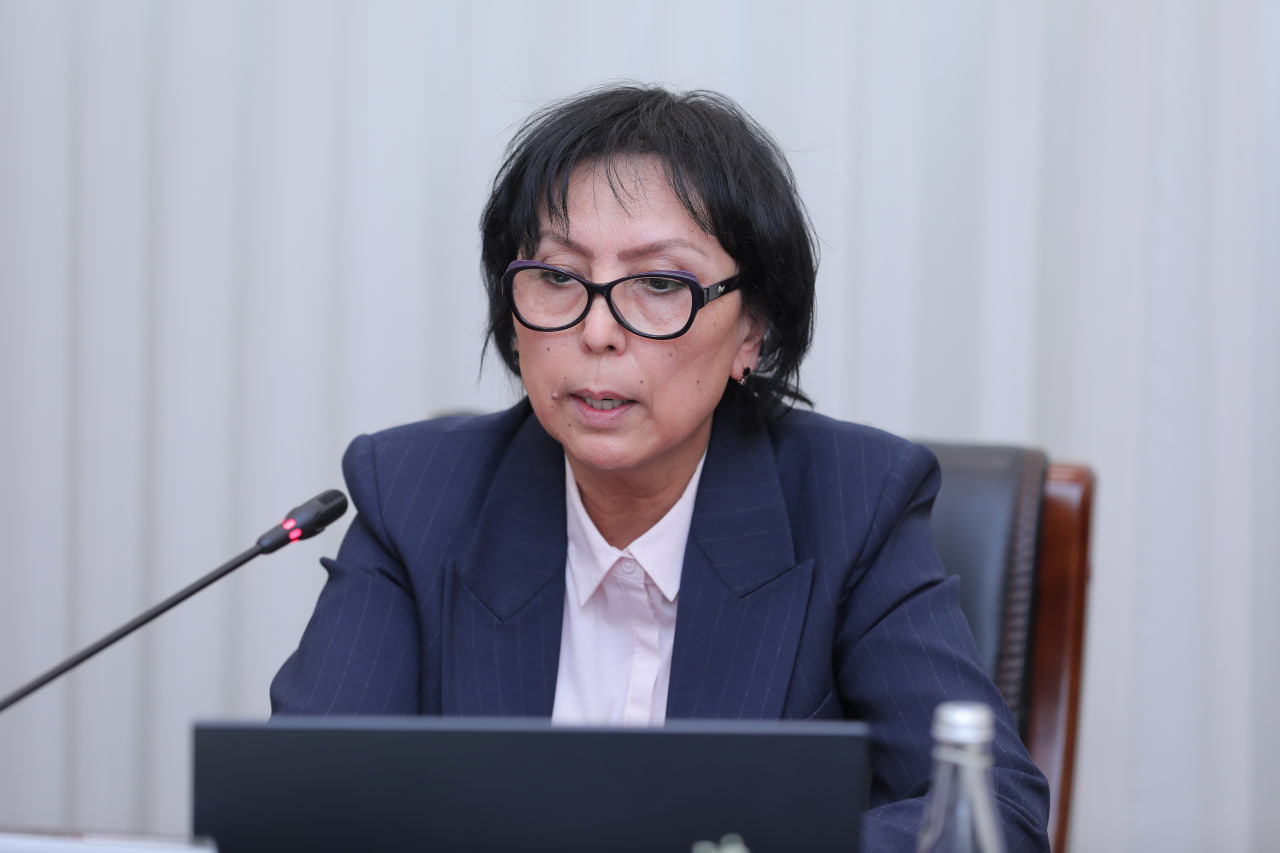
Accordingly, it was decided at the Central Election Commission meeting to accredit observers from international organizations who will participate in the elections to the Legislative Chamber of the Oliy Majlis and the local Councils (Kengashes), and some observers from international organizations such as the Commonwealth of Independent States, the CIS Inter-parliamentary Assembly and the Office for Democratic Institutions and Human Rights of the Organization for Security and Cooperation in Europe were accredited.
As of today, foreign and international organizations wishing to accredit observers can log into the “E-Saylov” information system in their country and enter data electronically in a specific format and submit it for review.
Another notable aspect of this process is that new samples of mandates of accredited foreign observers are automatically generated electronically through this system.
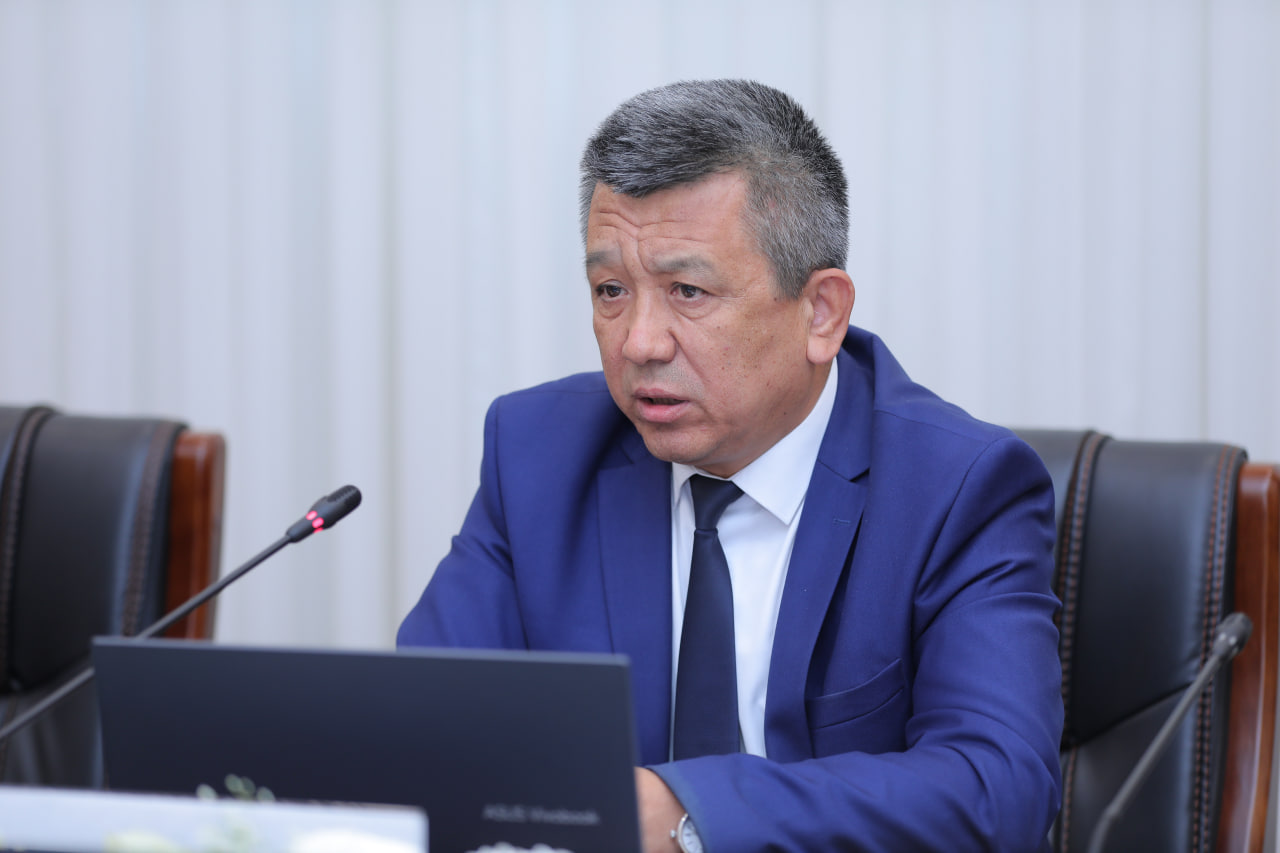
Also at the meeting of the Central Election Commission, the relevant decision was taken on the establishment of the Instant Information Center – “Call Center” - and the approval of its statutes. The “Call Center” will receive citizens' complaints centrally and provide them with legal explanations and consultations in real time.
The main objectives of the “Call Center” are to establish a dialog with citizens in real time during the election campaign, to provide the population with complete and reliable information on the activities of the commissions, the stages of the electoral process, to create the necessary conditions for the unconditional realization of citizens' rights to vote and appeal, and to strengthen their awareness of electoral legislation and processes.
Central Election Commission Press Service
Eldor Aripov: Address of the President of Uzbekistan – stratetic vector of the country’s future development
📅 05.01.2026
The Director of the Institute for Strategic and Regional Studies under the President of Uzbekistan (ISRS) Eldor Aripov, commented to Dunyo IA on President Shavkat Mirziyoyev’s Address to the Oliy Majlis and the people of Uzbekistan:
- The Address of President Shavkat Mirziyoyev to the Oliy Majlis and the people of Uzbekistan goes far beyond the scope of a routine annual political speech in its significance. It constitutes a strategic policy document that marks the country’s transition to a qualitatively new stage of development — the institutional consolidation of reforms and the formation of a sustainable growth model oriented toward the long term.
Over the past decade, Uzbekistan’s economy has undergone an accelerated process of qualitative and systemic transformation. While in the mid-2010s the country’s nominal gross domestic product stood at approximately USD 60–65 billion, it has now reached USD 145 billion, as noted in the President’s Address. In practical terms, this represents more than a twofold expansion of the nation’s economic scale over an unprecedentedly short historical period.
In recent years, average annual economic growth has consistently remained at around six percent. This reflects not only the preservation of positive momentum, but also the economy’s capacity for sustained growth amid external shocks — including the pandemic, disruptions to raw material supplies and logistics chains, and global inflationary pressures.
Sectoral indicators corroborate this assessment. Over the past decade, industrial output has more than doubled, whereas in the early 2010s industry played a largely auxiliary role relative to the commodity-based and agricultural sectors. Today, mechanical engineering, the electrical equipment industry, and the chemical sector make a stable contribution to the economy, while the share of processing and manufacturing activities in the GDP structure has already exceeded 80 percent.
The dynamics of the agricultural sector are equally indicative. Whereas ten years ago production volumes remained the primary benchmark, today — as emphasized in the President’s Address — the priority has shifted toward processing and the export of finished products. The expansion of fruit and vegetable processing and the growth of food exports are shaping a more resilient development model, reducing the economy’s dependence on fluctuations in harvest yields and prices.
Investment dynamics also reflect qualitative change. In recent years, investment in fixed capital has been growing at a rapid pace and has reached levels well above historical averages, whereas in the early 2010s this indicator was significantly lower. At the same time, the composition of investment has shifted: while previously it was concentrated primarily in infrastructure and state-led projects, a substantial share is now being directed toward industry, energy, transport, and digital solutions. As a result, investment is beginning to support not only current growth, but also the formation of the country’s future productive base.
External trade dynamics further reinforce this picture. Over the past decade, Uzbekistan’s export revenues have more than doubled: whereas in the mid-2010s exports of goods and services stood at approximately USD 12–13 billion, in recent years they have consistently exceeded USD 24–25 billion. Crucially, this growth has been driven not only by favorable price conditions, but also by changes in the structure of export supplies.
This transformation is most clearly visible in the manufacturing and processing industries. Over the past decade, exports of textile products have increased more than threefold — from less than $1 billion to around $3 billion and above — reflecting a shift from raw-material exports to finished goods. A similar trajectory can be observed in the electrical engineering, chemical, and food industries, where export volumes have risen several times over as a result of expanded production chains and access to new markets.
Macroeconomic balance warrants particular attention. Economic and investment growth has been accompanied by the maintenance of a controlled level of public debt and overall financial stability. This is especially significant, as recent experience shows that rapid growth without adequate balance often leads to the accumulation of constraints on future development. The Address underscores that Uzbekistan has deliberately chosen a more cautious, yet strategically advantageous, development trajectory.
A comparison of developments over the past decade leads to a key strategic conclusion: the republic has reached a stage at which further progress is determined less by the sheer size of the economy than by its quality. This is why the President’s Address places central emphasis on boosting labor productivity, advancing technological modernization, and deepening industrialization. The achievements to date are viewed as the foundation upon which the economy of the coming decade is to be built.
Compared with the starting point a decade ago, the country’s economy has become larger, more diversified, and more resilient. These changes provide a long-term strategic foundation for improving citizens’ well-being and strengthening Uzbekistan’s position in both regional and global markets.
Another notable aspect of the President’s Address is its clear illustration of the feedback loop between the state and its citizens, particularly in terms of aligning ongoing reforms with the everyday needs of the population.
An analysis of the Address indicates that its priorities fully align with the issues consistently highlighted in public opinion surveys and citizen appeals over recent years. At the center of attention are employment, income levels, access to social services, the quality of education and healthcare, as well as fairness and efficiency in public governance.
Whereas in 2017–2018 poverty in Uzbekistan was measured in double digits (around 35 percent), by 2024 it had fallen to 8.9 percent.
The projected reduction to 5.8 percent in 2025 demonstrates that the country is not only approaching the previously set target — reducing poverty to six percent by the end of the year — but is actually surpassing it.
Moreover, the Address highlights a strategic goal of eradicating extreme poverty by 2030, making the fight against poverty a central pillar of the country’s long-term policy framework. This achievement has been made possible through the effective implementation of a series of social programs and reforms aimed at sustainably increasing household incomes, creating employment opportunities, and strengthening social protection.
For a significant portion of the population, particularly young people and residents of regional areas, access to stable employment and reliable sources of income is the key determinant of social well-being. Support for small and medium-sized enterprises, as well as the development of industry and infrastructure highlighted in the Address, directly responds to these expectations. International organizations, including UNDP and the Asian Development Bank, note in their studies that such a focus on employment is among the most effective tools for social stabilization.
Equally important as an indicator that the state listens to its citizens is its focus on the quality of basic services. In the Address, education, healthcare, and workforce development are presented as strategic priorities rather than secondary concerns. This aligns with the public’s expressed demand for improvements in human capital and social mobility.
The section on public governance also warrants special attention. In recent years, one of the most frequent requests from citizens has been the reduction of bureaucracy and the enhancement of transparency and accountability among officials.
Taken together, the content of the Address suggests that the state demonstrates the ability to listen to its citizens and translate public expectations into elements of strategic policy.
President Shavkat Mirziyoyev plays a particularly important role in this process as the key architect of these reforms. International financial and analytical institutions have repeatedly emphasized that political leadership is a decisive factor in the successful implementation of comprehensive reforms in countries with transitioning economies.
In Uzbekistan’s case, consistency, political will, and a focus on long-term results have made it possible to synchronize macroeconomic stabilization, social policy, and institutional reforms within a single strategic framework. The President’s Address serves both as a concentrated expression of this strategy and as a tool for its further deepening.
Taken together, the President’s Address to the Oliy Majlis and the people of Uzbekistan constitutes not merely an agenda for the next stage of reforms, but a strategic framework for the country’s future development. Supported by empirical data and assessments from leading international organizations, it strengthens domestic consensus and enhances the confidence of the international community. Its key significance lies precisely in its role as a document that defines the sustainability of reforms and the country’s long-term competitiveness.
Dunyo IA
How the phrase “Spirit of Central Asiaz” appeared in world political science
📅 01.07.2024
New trends in Central Asian politics of Uzbekistan
Uzbekistan's policy in Central Asia has reached a qualitatively higher level. The trend of developing mutually beneficial cooperation between the countries of the region is intensifying with its own characteristics. According to President Shavkat Mirziyoyev, Uzbekistan has given priority to strengthening relations of close friendship and cooperation with neighboring countries, and over the past historically short period - the political position and influence of our country in the Central Asian region and the Middle East. The world has grown dramatically. The spirit of trust in New Uzbekistan and the principles of striving for cooperation with our country have increased in the world.
Central Asia is a region with important and unique resources, economic and communication potential. In the 90s of the 20th century, the countries of the region embarked on their own independent path of development and joined the ranks of developing countries, promoting humanism, social justice, and security. in the region there is international harmony, peace and well-established foreign policy activities and international cooperation, based on the principles of international law, such as the creation of an atmosphere of peace, and consistently developing them.
In the direction of the foreign policy of New Uzbekistan, in establishing practical cooperation in the countries of Central Asia, the fifth priority direction of the “Uzbekistan-2030” strategy has been identified - the consistent continuation of a policy based on the principle of “A Safe and Peaceful State”. the region to a new level of quality, good neighborliness and strategic partnership with all neighboring countries, pays special attention to the rapid development of relations, regular and effective conduct of bilateral and multilateral negotiations in political, economic, cultural and humanitarian areas.
The measures taken by the government of the Republic of Uzbekistan to expand mutual cooperation between the countries of the region also play an important role. It should be noted that as a result of President Shavkat Mirziyoyev’s reforms in the field of foreign policy, diplomatic relations of Uzbekistan with the countries of the Central region literally rose to a new level.
The fact that Shavkat Mirziyoyev began his first visit to foreign countries as President of Uzbekistan with a visit to the countries of Central Asia, literally indicating that he has raised the development of regional cooperation to a new level.
On March 6-7, 2017, Shavkat Mirziyoyev made a state visit to Turkmenistan. It should be noted that this was Sh. Mirziyoyev’s first visit to a foreign country as the President of the Republic of Uzbekistan. This state visit of the President clearly confirmed that Uzbekistan attaches great importance to good neighborly relations in foreign policy, and was supported by the signing of the Strategic Partnership Agreement between Uzbekistan and Turkmenistan.
The visit of President Shavkat Mirziyoyev to Kazakhstan on March 23, 2017 and the signing of a Joint declaration on deepening the strategic partnership and strengthening the friendly neighborhood between the two countries opened a new era in interstate cooperation. Thanks to the joint efforts of Uzbekistan and Kazakhstan, in 2017 the volume of bilateral trade reached 2 billion US dollars, and such direct contacts serve as the basis for the effective implementation of bilateral and multilateral cooperation.
Following the state visit of President Shavkat Mirziyoyev to the Kyrgyz Republic, a declaration was signed on strengthening strategic partnership, friendship, good neighborliness and trust.
In 2018, the implementation of the new policy of the President of Uzbekistan to strengthen political trust and mutual solidarity in Central Asia continued consistently. In particular, President Sh. Mirziyoyev visited this country on March 9-10, 2018 at the invitation of the President of the Republic of Tajikistan E. Rahmon. During the visit, the leaders of the two countries signed a Joint Statement on Strengthening Friendship and Good Neighborhood and an Agreement on Certain Sections of the Uzbek-Tajik State Border.
In addition, as a result of the continuation of negotiations of the Republic of Uzbekistan on the delimitation and demarcation of the state border with neighboring countries, the delimitation of the state border lines with Kazakhstan has been completed, 85 percent of the border with Kyrgyzstan has been passed. agreed upon, and 99.9 percent of the border with Tajikistan has been agreed upon.
At the end of 2021, trade turnover between Uzbekistan and Tajikistan amounted to almost 600 million US dollars. The number of joint ventures has increased 10 times. If in 2017 there were 24 enterprises operating in Uzbekistan, then by the end of 2021 240 enterprises with the participation of Tajik capital began operating. There are 61 enterprises operating in Tajikistan based on investments from Uzbekistan.
On June 2-3, 2022, the presidents of Tajikistan and Uzbekistan Shavkat Mirziyoyev and the presidents of Tajikistan signed a historic declaration “On strengthening eternal friendship and alliance.” In addition, documents signed at the level of government, ministries and departments are designed to raise multifaceted Uzbek-Tajikistan cooperation to a new level.
Analyzing the platforms and formats of interstate dialogue organized on the initiative of Uzbekistan on regional cooperation, it should be noted that, on the initiative of the head of Uzbekistan, consultative meetings of the leaders of Central Asian countries are regularly held.
Consultative meetings are systematically organized as part of this initiative (March 2018, Kazakhstan; November 2019, Uzbekistan; August 2021, Turkmenistan; July 2022, Kyrgyzstan; 2023, Tajikistan). As positive trends in Uzbekistan’s policy in Central Asia, practical proposals made at these meetings can be noted. In particular, at the fourth consultation meeting held in Kyrgyzstan, he put forward a number of proposals that meet the interests of the region. In particular, the interests of the region today are served by such proposals as the creation of a system of border trade zones with unified and simplified procedures for the delivery of goods to Central Asia and the holding of a Central Asian festival of culture, art and cinema in each country.
Indeed, here it is permissible to note the high assessments expressed by many foreign experts to the initiatives of Uzbekistan. For example, Li Yunxuan, director of the Institute of European and Asian Social Development under the State Council of China, says: “Uzbekistan is an active participant in the processes of strengthening regional and interregional cooperation, in the mechanism of consultative meetings of leaders of Central Asian countries, in ensuring the effectiveness of cooperation on topical issues of ensuring regional stability and development plays an important role.
Indeed, as a result of the growing role of Central Asia in modern international relations, “the spirit of trust in New Uzbekistan and the principles of cooperation with our country have increased in the world.” ... Our countries, which have been common brothers and sisters from time immemorial, began to act in close cooperation on many regional and global issues and socio-economic development.
The phrase “spirit of Central Asia” has appeared in world political science.
On September 14, 2023, President of Uzbekistan Shavkat Mirziyoyev spoke at the fourth consultative meeting of leaders of Central Asian countries held in Tajikistan and put forward a number of proposals to strengthen new trends in the Central Asian region. politics of Uzbekistan. Including the development of trade and economic cooperation in the region; development of industrial cooperation; increasing interdependence in transport; ensuring security in the energy sector; ensuring food safety; Combating the threats posed by climate change.
The issue of creating an interstate economic council to expand practical cooperation on the entire range of trade and economic issues in the region also deserves attention. Another platform implemented at the initiative of Uzbekistan is the Central Asian Economic Forum. On March 15, 2019, the first Central Asian Economic Forum was held in Tashkent with the participation of deputy prime ministers of Uzbekistan, Kazakhstan, Kyrgyzstan, Tajikistan and Turkmenistan. Positive results were achieved through discussion at the forum of issues of further development of regional cooperation, studying the possibilities of the transport and communications complex, increasing the volume of mutual trade and the attractiveness of tourism.
At the initiative of Uzbekistan, in order to ensure good neighborliness and interethnic harmony between the peoples of the countries of Central Asia, on November 15, 2019, an international conference was held in Tashkent with the participation of experts and scientists from foreign countries on the topic “Central Asia is our common home,” which serves to bring the countries of the region closer together in cultural and humanitarian sphere.
Uzbekistan's policy in Central Asia is consistent in identifying new trends, ensuring stability and security.
On March 9-10, 2018, the President of the Republic of Uzbekistan Shavkat Mirziyoyev made a state visit to the Republic of Tajikistan. At the high-level meeting, special attention was paid to strengthening interstate cooperation in the areas of ensuring regional security and stability, promoting the solution of international problems, combating terrorism and extremism and other types of organized transnational crime, which is an important achievement of Uzbekistan. diplomacy in ensuring regional security and stability. According to Tajik expert Kasimsho Iskandarov, relations between Tajikistan and Uzbekistan depend on the political will of state leaders. After Shavkat Mirziyoyev came to power, relations between the two countries changed dramatically. The rapid development of Tajik-Uzbek relations has solved many problems not only between the two countries, but also between all countries in the region. The political environment for developing regional cooperation has improved.
Also, on the initiative of President Shavkat Mirziyoyev, on June 22, 2018, the UN General Assembly for the first time adopted a resolution “Strengthening regional and international cooperation to ensure peace, stability and consistent development in the Central Asian region”. Our opinion is confirmed by the fact that Uzbekistan has put forward proposals for the formation of a regional system for forecasting emergency situations in the region, their prevention, early warning and joint counteraction.
It is worth noting that there are several factors that contribute to the development of good neighborly relations, such as mutual trade, investments and joint projects.
If we look at the numbers, we can witness that Uzbekistan’s trade turnover with the countries of Central Asia has grown to an unprecedented level. Trade turnover in 2017 amounted to $2.4 billion, and by the end of 2019 it reached $5.2 billion. In two short years the growth was 150 percent. Despite the restrictions caused by the pandemic, the growth in freight volumes observed in Central Asia in 2020 demonstrates the enormous potential for further expansion of international roads and railways and strengthening of transport and logistics infrastructure. In this regard, on August 6, 2021, within the framework of the third consultative meeting of leaders of Central Asian countries, at the Economic Forum of Central Asian Countries, held in the Avaza National Tourist Zone (Turkmenistan), the Uzbek side discussed the development of transport corridors connecting the countries of Central Asia, increasing efficiency use of the transit potential of the countries of the region, and also, it is worth noting that he made a proposal to strengthen cooperation on the harmonization and digitalization of customs clearance procedures. It is worth noting that “in recent years, radical reforms in our country, a consistent and active foreign policy, especially strengthening the environment of close neighbors in the Central Asian region, have increased the international prestige of our country”.
If we evaluate the new trends in the Central Asian policy of Uzbekistan, we can see that their impact on regional interaction and international relations is acquiring positive significance.
It should be noted that on December 19, 2019, at the plenary meeting of the UN General Assembly, a special resolution “Sustainable tourism and sustainable development in Central Asia” was adopted, proposed by President Shavkat Mirziyoyev.
In short, the special significance of the approaches in the regional policy of Uzbekistan lies in the fact that they serve to strengthen the belt of security, stability and cooperation throughout the region. In the context of increasing threats to regional and global security, the socio-economic well-being of countries, Uzbekistan is of great importance in determining new trends in the politics of Central Asia and the prospects for jointly combating modern dangers and threats.
Mirzayev Gulom,
Doctor of philosophy in historical sciences (PhD), associate professor at the University of Public Safety of the Republic of Uzbekistan
Uzbekistan recognized as the safest of 121 countries worldwide
📅 29.07.2024
TASHKENT, July 28. /Dunyo IA/. Uzbekistan took 1st place in the ranking of the safest countries in the world "Safety Perception Index 2023", which includes 121 countries, reports Dunyo IA correspondent.
According to Uzbektourism, the rating indicates that the level of danger to the life and movement of citizens in Uzbekistan is minimal.
The five safest countries also included the United Arab Emirates, Saudi Arabia, Norway and Estonia.
Of the Central Asian countries, Kazakhstan took 14th place, Tajikistan – 17th, Kyrgyzstan – 26th.
Guinea, Sierra Leone and Mali took the lowest place in the rating.
The "Safety Perception Index" focuses on five factors: food and water, violent crime, adverse weather conditions, mental health and safety in work settings. These factors serve as an important basis for the formation of an image that will become the basis for the security rating of countries.
The fact that Uzbekistan is in first place in this ranking creates the basis for the unhindered arrival and departure of foreign tourists to our country.
Information on infrastructure and first investment projects' construction presented
📅 30.12.2024
The President got acquainted with the construction of transportation infrastructure and engineering communications in New Tashkent.
As is known, the city under construction is designed for 1 million residents, which requires appropriate infrastructure with a view of long-term operation. In this regard, major underground engineering works are underway, laying the foundation for future grandiose constructions.
It is planned that infrastructure, daily life and ecology will harmoniously coexist in the new city. For instance, it is planned to create an environmentally friendly transportation system - metro and electric buses will be closely interconnected. For transportation 14 tunnels will be built, underground parking lots for 100 thousand cars will be equipped. In addition, all conditions will be created for barrier-free and safe movement of pedestrians and cyclists.
At one of the future intersections, foundation pouring for columns and waterproofing works are already underway. The President reviewed these processes. Recommendations were given on the use of high-quality and resistant materials.
Currently, the construction of one-section and two-section engineering collectors has begun, through which all centralized heating, water, electricity and telecommunications networks will pass underground.
The city will apply “smart” technologies in line with modern urbanization requirements. For the first time in the country, a “trigeneration” plant will be built here. Wastewater will be processed using modern technologies, and the resulting water will be used for irrigation and technical needs.
The President was also presented with the projects envisioned within the framework of the first stage of construction of New Tashkent. The winners of the auctions at which land plots were offered presented their investment initiatives.
Many local and foreign investors are interested in New Tashkent. Within the framework of the first phase, 11 mixed-use complexes, as well as hotels and restaurants have already been launched at a total cost of $490 million. Residential and commercial facilities as well as social institutions will make the neighborhood lively and attractive. Meanwhile, hotels and restaurants built in a unique architectural style will provide high-class service to guests and turn the city into a tourist center.
Next year, land plots for subsequent phases will be put up for bidding. Each phase will present new investment opportunities and projects. This will not only contribute to the further development of the city, but also create many new jobs and support local businesses.
In general, it is planned to create about 200 thousand high-income jobs in New Tashkent through the introduction of innovative technologies. Technoparks, IT-park, educational and medical clusters will be created for this purpose.
The President of Uzbekistan held a meeting with the Secretary-General of UN Tourism
📅 15.06.2024
President of the Republic of Uzbekistan Shavkat Mirziyoyev met with Secretary-General of UN Tourism (World Tourism Organization) Zurab Pololikashvili, who is in our country on a working visit, in Samarkand on June 15.
The sides discussed issues related to further expansion of Uzbekistan's multifaceted cooperation with this specialized UN institution.
The course of implementation of agreements reached and initiatives put forward at the 25th session of the organization's General Assembly, which was held in Samarkand in October 2023, has been reviewed. The UN General Assembly's adoption of the resolution initiated by Uzbekistan on declaring 2027 the International Year of Sustainable and Resilient Tourism was highly appreciated.
It was noted with deep satisfaction that the organization is a strategic partner of Uzbekistan in the development of modern tourist infrastructure and popularization of tourist destination to our country.
It was noted the importance of continuing joint efforts to implement programs and projects aimed at creating comfortable conditions and facilities for tourists, development of pilgrimage and cultural and cognitive tourism, including domestic tourism.
Special attention was paid to the issues of training qualified personnel in the field of hospitality and service with the effective use of opportunities of the International Academy of Tourism operating in Samarkand.
In order to popularize the tourist destination in Uzbekistan, practical interaction will be expanded in the issues of supporting the participation of domestic tour operators in major international tourism fairs and exhibitions.
Congratulations to the people of Uzbekistan on Kurban Hayit holiday
📅 15.06.2024
Dear compatriots!
Sincerely, from the bottom of my heart, I congratulate you, all our people on the holiday of Kurban Hayit, which has come in our country, which is being transformed and illuminated with the light of peace, kindness and harmony every day.
In these blessed moments we all deeply feel the spirit and joy of the great holiday and give immense gratitude to the Almighty for the fact that we meet such bright days together with our people.
Today, Kurban Hayit, firmly established in people's lives as a symbol of mercy, generosity and humanism, is gaining more and more significance, consonant with the content of large-scale reforms in the New Uzbekistan, in which respect for human honor and dignity comes to the fore in all spheres.
It should be especially noted that our sacred religion and this bright holiday, which embodies its humanistic essence, serves as a source of strength and inspiration for us in all good deeds aimed at strengthening the atmosphere of peace and tranquility, friendship and cohesion in mahallas and families, caring for the older generation, youth and women, low-income families, and making sure that no one is left behind.
Dear friends!
In these bright days, when our hearts are filled with joy, we talk about the great work carried out in recent years to revive the original spiritual values, to improve the sacred places, to create favorable conditions for the Muslims of the country to freely perform religious rites, including hajj and umrah.
In a short period of time, international scientific centers of Imam Bukhari, Imam Termezi and Imam Maturidi have been organized. The memorial complexes of Abu Iso Termezi, Abu Muin Nasafi, Sulton Uwais Karani and Suzuk Ota have been radically transformed. Work on the construction and equipping of the Imam Bukhari memorial complex and the Centre for Islamic Civilization is continuing apace. Majestic mosques are being built in many towns and villages.
Over the past seven years, more than 60 thousand Muslims of the country have made the Hajj. These days 15 thousand more of our compatriots are making pilgrimage to two sacred cities - Mecca and Medina, having realized their most cherished dream.
In such blessed moments, when good thoughts come true, we wish them with all our heart to fully perform the rites of Hajj and safely return to their homeland.
On the eve of the celebration of Hayyit, during our telephone conversation with the Chairman of the Muslims' Board, the Honorable Mufti Sheikh Nuriddin Kholiknazar, who is staying in the holy Mecca, he emphasized the created conditions necessary for our compatriots to perform the rites of Hajj. We hope that, having returned home, our pilgrims will become an example in further strengthening the atmosphere of kindness and mutual assistance in the society, in the struggle of enlightenment against ignorance, strengthening the education of youth and establishing harmony in families.
Dear compatriots!
Today we sincerely congratulate our compatriots abroad on this holiday, wish them health, happiness and success.
We convey warm congratulations to believing Muslims in the states of near and far abroad and sincere wishes of peace and progress to their peoples and countries.
May the ongoing wars and conflicts in different regions cease! May peace reign on the Earth forever!
Dear friends!
Today, together with our multinational people, we are building a new Uzbekistan. The new Uzbekistan is a new life, a new development, a happy future.
If we unite more firmly and continue the initiated reforms with even greater determination, we will undoubtedly achieve this great goal.
We will surely raise our children to be a generation of true patriots, highly educated, possessing modern knowledge and professions.
I wish you happiness and success on this path.
May the Almighty protect our nation!
I once again congratulate you on the holy holiday of Kurban Hayit, wish you health, peace and prosperity to your families.
Shavkat Mirziyoyev,
President of the Republic of Uzbekistan
The first meeting of the Termez Dialogue on Connectivity between Central and South Asia to take place in Termez from May 19 to 21
📅 16.05.2025
The first meeting of the Termez Dialogue on Connectivity between Central and South Asia, dedicated to the theme "Building a Common Space for Peace, Friendship, and Prosperity," will be held in Termez on May 19-21, 2025. This meeting is expected to be attended by representatives of the foreign policy agencies of Central and South Asian countries, which are becoming the focus of world politics, as well as representatives of specialized UN organizations, international and regional organizations such as the CIS, the SCO, the CICA, and leading specialists and experts in relevant fields.
Central and South Asia have long been connected by reliable trade routes and have served as a bridge between the countries of the Middle East, Europe, and China. The peoples of this region share historical and civilizational commonalities, having repeatedly existed within common state associations in the past, as well as within a single political, economic, and humanitarian space. Over many centuries, relations between the two regions have been strengthened by numerous migration flows, intensive trade exchanges, rapid dissemination of scientific ideas, and cultural cross-pollination.
As a result of the spread of Zoroastrianism, Hinduism, Buddhism, and Islam in these regions, unique ethnocultural associations formed, which left a deep mark on human history.
The incorporation of the peoples of this region into such states as the Bactrian and Kushan kingdoms, the Turkic Khaganate, Khorasan and Transoxiana, the Ghaznavid, Timurid, and Mughal empires had a great influence on their historical, cultural, and political development. Common customs, traditions, lifestyles, and holidays were formed; spiritual values were created in Persian, Turkish, and Arabic. Medieval cities such as Bukhara, Samarkand, Termez, Balkh, Herat, Ghazni, Agra, and Delhi were shared centers of science.
The mutual competition of colonial powers negatively affected the traditional ties, trade, and cultural exchange of the peoples of Central and South Asia. Trade and economic relations in South Asia changed, and local supply systems, main industries, and economies became dependent on supplies from outside the region. This development weakened the traditional cultural ties between South Asia and Central Asia.
Today, jointly addressing existing problems that threaten peace and stability in the region is one of the important factors in the social, cultural, and economic development of these countries. Therefore, the renewal of their close historical ties is becoming increasingly relevant. Taking the above into account, the Termez Dialogue on the Connectivity between Central and South Asia is being organized.
The location chosen for the dialogue is connected to the geostrategic position of this city, situated at the crossroads of Central and South Asia, or at the intersection of interregional connectivity routes. Termez has long been a center of trade, economy, and crafts, serving as a link between the vast regions of Central and South Asia. Therefore, from a geopolitical perspective, the city can be considered a "natural bridge" connecting Central and South Asia, the most suitable place for bringing the peoples of the region closer together through its historical location and cultural heritage.
Currently, the countries of Central and South Asia represent a territory of global significance, with a population of more than 2 billion people and great educational potential. The region is experiencing high demographic growth, with the majority of the population consisting of young people, and there are enormous opportunities for realizing intellectual potential. While the population of South Asian countries is about 2 billion people, the number of people living in Central Asia is about 82 million, and the population of Central Asian states is growing year by year. The countries exhibit a "disparity in literacy levels." For example, among the leading countries of Central Asia, the average adult literacy rate is 99 percent, while in South Asia it is 74 percent.
One of the pressing problems is the uneven quality of education, insufficient coverage of preschool and higher education, especially among girls and residents of remote areas. In South Asia, youth unemployment remains high, and in some countries, this figure exceeds 40 percent. At the same time, the employment rate of women is one of the lowest in the world. In addition, the infrastructure of educational systems is not sufficiently developed, and the shortage of specialists and teacher qualifications also creates a number of problems.
In this context, cooperation in the field of science and education is becoming increasingly relevant. Scientific cooperation in the context of digitalization and geopolitical instability will allow for maintaining dialogue between academic circles. At the same time, limited academic mobility and weak coordination between scientific communities significantly hinder the development of states' potential in science, innovation, and technology.
In this regard, it is necessary to encourage joint research and innovation work, the organization of scientific and educational internships, experience exchange programs, the development of startups, and the holding of competitions.
The adoption of a joint program of academic and research exchanges under the auspices of UNESCO is becoming relevant. It is also necessary to launch an online platform between universities and research structures of the countries of Central and South Asia.
This will contribute to the creation of a sustainable regional network of scientific diplomacy, the formation of a common agenda in the field of education and technology, and the emergence of a unified scientific space.
The above-mentioned steps will serve as a powerful tool for the development of scientific diplomacy, which will facilitate interaction between the countries of the two regions.
From this point of view, the integration of intellectual resources in Central and South Asia, strengthening cooperation in the field of education, and developing cooperation platforms to improve the quality of education are important for the future of the region. The transformation of demographic potential into human capital is the main condition for sustainable development, economic growth, and a worthy place in global competition for both regions. In this regard, the development of education as one of the priority areas of regional cooperation, the development of partnerships for the exchange of experience and training of personnel in various countries is most relevant.
The countries of the region, in particular India and other South Asian countries, have in recent decades been occupying an increasingly prominent place in the world community in the field of science, technology, and innovation. Information technology, aeronautics, pharmaceutical production, and artificial intelligence are rapidly developing in India. For example, in 2014, the Indian Space Research Organisation (ISRO) made history as the first Asian country to launch an artificial satellite into Mars orbit. In 2023, as part of the "Chandrayaan-3" project, a successful landing on the Moon's surface was achieved. These results demonstrate the country's independent and innovative capabilities in the scientific field.
In the field of information technology, India has become one of the world's largest IT outsourcing centers. Cities such as Bangalore, Hyderabad, Pune, and Chennai have become major hubs for Google, Microsoft, Amazon, IBM, Oracle, and many other multinational corporations. Every year, millions of specialists in technical and technological fields are trained in the country. Among India's higher education institutions are prestigious scientific centers like the Indian Institutes of Technology (IITs) and Indian Institutes of Science (IISc), which also rank highly in global ratings. It's worth noting that scientific research in artificial intelligence, bioengineering, quantum computing, and cybersecurity is widespread in the country.
Pakistan is also making progress in science, especially in nuclear energy and military technologies. Centers such as COMSATS University and the Pakistan Institute of Engineering and Applied Sciences (PIEAS) play a crucial role in the country's scientific development. In particular, government programs are being implemented to strengthen international cooperation in IT and cybersecurity.
In Bangladesh, alongside the textile and light industry, information technology is developing rapidly. Based on the "Digital Bangladesh" strategy, the country has widely implemented e-government, digital, and distance learning services. In 2021, over 120 IT parks were established in Bangladesh, demonstrating the country's commitment to digitalizing its economy.
Afghanistan's scientific and technological potential remains limited, and issues related to political stability are hindering its development. Nevertheless, some universities and educational institutions in the country, particularly Kabul University, participate in scientific projects with the support of various international educational organizations.
In this context, developing a joint strategy for digital connectivity between Central and South Asia is crucial. Adopting such a document will create significant opportunities for stimulating trade and investment, improving access to education and healthcare, strengthening regional cooperation, and increasing competitiveness on the global stage.
Coordinating efforts of Central and South Asian countries to widely implement the digital economy will contribute to improving digitalization processes in all spheres of life. Moreover, this will advance the implementation of the SDG initiative to ensure safe Internet access for the population and will open up great opportunities for education and medical services.
Overall, deepening digital connectivity between Central and South Asia will bring significant economic and social benefits to both regions, create a solid foundation for expanding trade, economic, energy, and transport links, and enhance the competitiveness of the region's states on the global arena.
In general, the Termez Dialogue is an important initiative that contributes to elevating the interaction between Central and South Asian states to a new level in the process of today's geopolitical and civilizational transformations. This dialogue, particularly in the fields of education, science, and new technologies, will stimulate, consolidate, and expand the intellectual potential of the two regions. This is because in both regions, the majority of the population consists of young people who show high interest in education, are capable of scientific research, and quickly adapt to digital technologies.
Today, countries such as India, Pakistan, and Bangladesh have achieved world-class successes in information technology, biotechnology, nuclear physics, medicine, and artificial intelligence, while Uzbekistan, Kazakhstan, and other Central Asian countries are also taking active measures to update scientific infrastructure, expand international cooperation, and implement modern educational projects. The Termez Dialogue is a unique opportunity to combine this experience and achievements, establish student and scholar exchanges, create joint research centers, and develop startups and innovative platforms in IT and STEM.
This dialogue has great historical significance in ensuring regional stability, creating a foundation for peace, progress, and intellectual development through science and education. The states of Central and South Asia have the potential to become the leading intellectual center in the entire Eurasian space based on the principle of mutual trust and shared future, integration in the spheres of education and science.
Participants of the International Scientific and Practical Conference “The Role of Scientific Heritage of Imam Termezi in Islamic Civilization”
📅 21.10.2024
Dear forum participants!
Dear guests!
I sincerely congratulate you, all those who make a worthy contribution to the development of the holy religion Islam, on the opening of the international scientific-practical conference dedicated to the study of the scientific heritage of the great muhaddis Imam Termezi in the homeland of outstanding Muslim scholars - in Uzbekistan.
It is gratifying that today's authoritative forum is attended by renowned specialists in the field of Islamic studies - prominent scholars and ulema, experts and researchers. In your person we see the continuers of the good traditions of the great thinkers who are the pride of the Muslim world - Imam Bukhari and Imam Termezi.
May the Almighty bless you, I wish you happiness and prosperity!
Dear friends!
Speaking about our outstanding ancestors-scientists, bright representatives of the Islamic world of the Middle Ages, we, of course, among the first names of Hazrat Imam Termezi.
We are rightfully proud of this incomparable person, the favorite disciple of the great Imam Bukhari, who was honored with the high rank of Sultan of Muhaddis, who has been glorifying our region for twelve centuries with his undying works and high human qualities.
Imam Termezi is recognized in the world as one of the six great muhaddis, his collection of hadiths is among the most revered and reliable sources, and the Muslim Ummah bows before the name of this outstanding man.
Another practical expression of such recognition is the fact that the topic for discussion at today's conference was the unique works of Imam Termezi “Ash-Shamoil al-Muhammadiyya” and “Sunani Termiziyya”, as well as important issues concerning the scientific heritage of the Ulema Termezis and its relevance today.
Dear participants of the conference!
In recent years, a great work has been carried out in our country to study and popularize the invaluable heritage of many of our thinkers-theologians who made a great contribution to the development of the Islamic religion, to honor their memory, to improve the places associated with their life and activities, including Imam Termezi.
It should be noted that a magnificent memorial complex has been erected in his honor in Sherabad district of Surkhandarya province, and an international research center, a specialized Islamic secondary school and an Islamic institute have been opened in the city of Termez bearing his name.
These institutions, together with the International Islamic Academy of Uzbekistan, the Centre for Islamic Civilization, the Hadith Scientific School and other religious educational and research organizations, are studying the rich heritage of Imam Termezi in a comprehensive and in-depth manner. In particular, works of the thinker are published, scientific researches, books and artistic works are dedicated to him.
I hope that after familiarizing yourselves with the work carried out in this direction within the framework of the conference, you will express your opinions and proposals on further activation of cooperation in this field.
We, the heirs of great scientists, emphasizing that Islam is a religion of peace, goodness and humanism, on the way of realization of good hopes and aspirations of mankind, consider it our most important duty to jointly enrich this incomparable spiritual treasure and preserve it for future generations.
I express my deep gratitude to the scientists and ulema of our country and to you, dear guests, to all figures of science who show real dedication for such a noble goal.
The doors of the leading research and educational institutions of Uzbekistan are always open for you.
Greeting you once again from the bottom of my heart, I wish you health, new achievements in your scientific and creative activities, and a successful conference.
Shavkat Mirziyoyev,
President of the Republic of Uzbekistan
Uzbekistan – OTS: Cooperation on the Path of Sustainable Development and Progress
📅 08.10.2025
President of Uzbekistan Shavkat Mirziyoyev arrived in the Azerbaijani city of Gabala to participate in the summit of the Organization of Turkic States (OTS).
Due to its geographical position, historical ties, and natural resources, the Organization of Turkic States is becoming an increasingly significant platform for cooperation at this new stage of development. At the same time, OTS serves as a cultural bridge, fostering closer ties between the peoples of its member countries.
The Organization is based on the principles of equality and mutual interest, non-interference in internal affairs, and respect for the sovereignty of states - principles widely recognized by the international community.
The OTS comprises five member states: Azerbaijan, Kazakhstan, Kyrgyzstan, Turkiye, and Uzbekistan. Hungary, Turkmenistan, and the Economic Cooperation Organization hold observer status.
The current name of the Organization was introduced on November 12, 2021, at the initiative of the President of Uzbekistan. Previously, it was known as the Cooperation Council of Turkic Speaking States.
The primary goal of the OTS is to strengthen trust and multifaceted ties among the brotherly nations, to promote cooperation in trade, economy, energy, transport, tourism, cultural and humanitarian spheres, and to coordinate efforts to ensure peace and security in the region.
The conceptual foundation for achieving these objectives is the “Turkic Vision – 2040” program, adopted following the Eighth Summit of Heads of State held in Istanbul in November 2021.
For Uzbekistan, which joined the Organization in 2019, participation has become an important step not only in strengthening economic and political ties but also in preserving and developing the shared cultural identity of the Turkic world.
Uzbekistan chaired the OTS in 2022–2023, beginning with the Samarkand Summit in November 2022 under the motto “A New Era of Turkic Civilization: Towards Common Development and Prosperity”.
During its chairmanship, more than 100 events were held, and new platforms for practical cooperation were created. Uzbekistan pursued an open, inclusive, and diverse model of interaction, embracing various regions and civilizations.
The adoption of the “OTS Strategy for 2022–2026” at the Samarkand Summit became a major milestone. This document marked the first roadmap for the implementation of the “Turkic Vision – 2040” concept.
President Shavkat Mirziyoyev has actively participated in OTS summits since Uzbekistan joined the Organization. In particular, he took part in the meetings of the Council of Heads of State on November 6, 2024, in Bishkek and May 21, 2025, in Budapest.
These meetings focused on the current state and future prospects of multilateral cooperation, as well as key issues of practical partnership.
In his address at the informal summit in Budapest, the President emphasized the complexity of today’s geopolitical and geo-economic situation, the intensification of regional conflicts, and the impact of climate change.
He stressed the importance of resolving international issues based on international law and the UN Charter, and the need for common positions and coordinated approaches among member states.
Speaking about the development of practical cooperation within the OTS, the President noted the enormous untapped potential and put forward several new initiatives.
Particular importance is attached to Uzbekistan’s proposal to sign a Treaty on Strategic Partnership, Eternal Friendship, and Brotherhood among the Turkic States, which would represent a significant step toward deeper unity and the creation of a long-term legal foundation for multilateral cooperation.
“Last year, we proposed developing a treaty on strategic partnership, eternal friendship, and brotherhood among the Turkic states. Today, the significance of this document is growing. Undoubtedly, it will promote further unity among our peoples and solidify the long-term legal framework for multilateral cooperation. I propose signing this document at the summit in Baku”, - the President stated.
Since 2019, President Shavkat Mirziyoyev has put forward 98 practical initiatives at OTS summits aimed at advancing multilateral cooperation. More than 70 have already been implemented, and about 30 are in the process of realization.
For Uzbekistan, the main priority within the OTS is the economy. The country is currently focused on boosting exports, attracting investment, creating jobs, addressing unemployment, and reducing poverty. All these goals are closely tied to global economic integration, where the OTS format can support further coordination and development of production chains.
The total area of the OTS member states is approximately 4.2 million square kilometers, with a combined population of over 170 million - representing vast opportunities and a substantial market.
Under existing agreements, the OTS is viewed as an effective mechanism for regional cooperation with great integrative potential. Trade and economic indicators between member states are growing every year.
Today, OTS countries collectively rank third - after China and Russia - among Uzbekistan’s external trade partners. In 2024, mutual trade volume reached nearly $10 billion, accounting for about 15% of the country's total foreign trade.
Trade relations with Kazakhstan - Uzbekistan’s largest trade partner within the OTS - and Turkiye - the second largest - are showing particularly strong growth. By the end of 2024, trade turnover with Kazakhstan reached $4.28 billion, and with Turkiye, $2.9 billion.
Trade with Azerbaijan also continues to show positive dynamics. Notably, mutual trade volumes with OTS partners are setting new records each year.
Uzbekistan’s key exports to OTS markets include textiles, electrical products, automobiles, fruits and vegetables, and non-ferrous metals. Imports from OTS countries consist of rolled metal, aluminum, mechanical tools, construction materials, petroleum products, and a significant portion of grain and other food items.
To maintain and accelerate this positive trend, it is crucial to implement President Shavkat Mirziyoyev’s initiatives, including the creation of the “TURK-TRADE” online platform to facilitate and speed up trade operations, and the adoption of a Program of Practical Measures to Expand Trade aimed at increasing mutual trade volumes.
Industrial cooperation is also a vital area. Uzbekistan is actively supporting the development of this sector and promoting the establishment of new enterprises with capital from OTS countries. This year, the number of such enterprises is expected to reach approximately 4 thousand, representing a 60% increase compared to 2019. Their share in the total number of foreign-capital enterprises in Uzbekistan is projected to reach approximately 20%.
Transport cooperation is receiving special attention. OTS countries are steadily increasing their role in global transit. In 2024, freight traffic through the Middle Corridor reached 4.5 million tons - almost six times more than in 2020. This growth underscores the strategic importance of infrastructure projects like the China–Kyrgyzstan–Uzbekistan railway.
Member countries are also working to ensure secure and reliable transport and energy corridors across the Caucasus and Central Asia. These efforts not only facilitate trade expansion but also contribute to economic independence and regional prosperity.
Uzbekistan is actively involved in cultural and historical heritage preservation and promotion. In education, the country supports student and scholar exchange programs, strengthens cooperation between universities and research centers of Turkic states, and promotes joint academic initiatives and knowledge-sharing platforms. Key areas of Uzbekistan’s proposals also include projects in energy and environmental protection.
In conclusion, President Shavkat Mirziyoyev's participation in the OTS summit in Azerbaijan will be another important step in advancing forward-looking initiatives for the development of the Turkic world and strengthening peace and stability in the region. This visit will also serve as a new impetus for the consolidation of unity and the enhancement of the well-being of the peoples of the Turkic states.
“Dunyo” IA
Address by the President of the Republic of Uzbekistan Shavkat Mirziyoyev at the second "Central Asia – Germany" summit
📅 17.09.2024
Distinguished heads of delegations!
I am sincerely glad to greet you all. I would like to echo the words of gratitude to the President of the Republic of Kazakhstan, H.E. Kassym-Jomart Tokayev, for the warm welcome and excellent organization of our meeting.
I am grateful to the distinguished Federal Chancellor of Germany, H.E. Mr. Olaf Scholz, for his commitment to expanding the multifaceted partnership with the countries of our region.
Our first meeting in Berlin and today's summit reaffirm shared intention to continue an open and constructive dialogue and our focus on achieving concrete practical results.
We are interested in holding regular meetings in this format, with setting up the mechanisms for expert review and implementation of the initiatives put forward.
Distinguished Federal Chancellor!
We highly value Germany's firm and unwavering support for the ongoing democratic transformations and socio-economic reforms in our countries, partnership and integration in Central Asia.
I would like to highlight that our multifaceted relationship has deep historical roots.
In the 18th century, the great composer of the Age of Enlightenment Handel created one of his greatest works – the opera "Tamerlane" – in just 20 days.
The great poet and philosopher Goethe dedicated a number of his famous works to our ancient cities - the centers of civilization.
I would like to mention another historical fact.
At the beginning of the 20th century, a group of talented, progressive young people from Central Asia studied at the leading German universities and subsequently made a great contribution to the promotion of the enlightenment ideas and socio-economic development of our region.
I would like to emphasize that today we see Germany as one of our important partners in achieving national goals of sustainable development.
Let me briefly highlight the profound and fundamental changes that have taken place in Central Asia in recent years.
We have established an open and productive dialogue and are independently addressing many issues related to borders, water, energy, trade and transit.
Recently, the Sixth Meeting of the Heads of State of the region was held here in Astana.
The international stance of the region is strengthening, cooperation with the leading countries via "Central Asia Plus" format is expanding.
The volumes of trade turnover, investment, freight transport and tourist travel by our citizens have increased many-fold.
We are discussing major regional projects in green energy and the development of transport communications.
We are exchanging experience and technologies, creating modern industrial and agricultural enterprises, and introducing financial instruments to stimulate cooperation projects.
Most importantly, we clearly understand that the future of our region, its security and sustainable development depends solely on our political will and efforts.
We sincerely welcome the interest of our European partners, first of all Germany, as the main initiator and driving force behind the promotion of EU strategies and multilateral cooperation programmes with our countries.
We are preparing to hold another summit in Uzbekistan in the format of "Central Asia - European Union" next year, having defined the investment in the future of the region as the main topic of the agenda of the meeting.
Dear colleagues!
Conflicts and wars, the overall global instability and unpredictability, sanctions policy, increased protectionism and many other factors are causing extremely negative impact on our countries and are becoming a serious test to the implementation of national programs and reforms.
Earlier, during our talks in Samarkand, I shared with Chancellor Scholz my high expectations from today’s meeting.
In this regard, I would like to outline our vision of the main directions for developing cooperation with Germany in Central Asia.
First. We highly value the establishment of a strategic regional partnership between Central Asia and Germany, which meets the common interests of maintaining stability, ensuring sustainability and prosperity of the region.
We consider it appropriate to adopt a long-term Concept for the development of our partnership with program activities in priority areas.
In order to develop this document, we propose to consider the possibility of establishing the “Central Asia – Germany” Forum of Analytical Centers. We are ready to hold its first meeting next year in Khiva - one of the region’s historic cities where a large community of German Mennonites used to live.
We also assign an important role to the annual meetings of the heads of the foreign ministries of our countries in preparing the agenda of our summits.
Second. Investment and technological partnership with the leading German companies.
I would like to note that the portfolio of ongoing and promising projects in Uzbekistan with the participation of German companies exceeds 20 billion Euros.
This includes energy, chemical and extractive industries, machine building, textile and food industry, agriculture, transport and logistics, production of construction materials.
The leading German companies, such as Siemens, Linde, BASF, MAN, Claas, Henkel, Knauf and many others are among our partners, which have invested about 6 billion euros into Uzbekistan’s economy in recent years.
Today we will have the opportunity to discuss long-term plans with the representatives of the German business.
In this regard, I have a number of specific proposals:
– developing a "road map" for expanding investment and technological cooperation between the Central Asian countries and Germany;
– participation of the leading German companies and banks in the implementation of joint projects in the special economic and industrial zones being created in the border areas, as well as large infrastructure projects of regional significance;
– launching of a permanent business dialogue platform – “Central Asia-Germany” Council of Investors and Entrepreneurs. We are ready to hold its first meeting next year in Uzbekistan within the Tashkent Investment Forum;
– study of the possibility of adopting a multilateral intergovernmental agreement on promotion and protection of investments.
Third. Partnership in critical raw materials based on the introduction of advanced German knowledge and technologies.
As it was mentioned our region is abundant in mineral resources.
The German Mineral Resources Agency and German companies could become our key partners in this area.
Here, we are referring to the geological survey projects, intensive exploration, processing and production of products with high added value, as well as arrangement of shipments to Germany and other EU countries.
Uzbekistan is ready to take part in the joint implementation of such projects in neighboring countries.
The technical assistance from Germany and European institutions in implementing the Digital Mapping Program of Critical Minerals and Rare Earth Metals in our region holds promising opportunities.
We also believe it is important to establish a reliable legal framework for such cooperation.
Fourth. “Green” energy. In recent years, all our countries have been actively developing solar, wind and hydropower, modernizing thermal power plants and networks, and promoting green hydrogen projects.
We propose to consider launching an Energy Dialogue between Central Asian countries and Germany, involving energy ministries, companies, operators, scientific organizations, design institutes and industry experts.
We are interested in preparing a Comprehensive Capacity Building Program for specialists in the low-carbon economy with the German technical assistance.
Fifth. Joint response to climate change.
Experts predict that the Central Asian region will remain most vulnerable to the effects of global warming. The rise in average temperatures will be twice as high as the world average.
We are grateful to the German side for launching the second phase of the “Green Central Asia” program, assistance provided for the implementation of environmental projects.
We are also interested in the following:
- implementation of joint educational programs and scientific exchanges at the Central Asian University of Environmental and Climate Change Studies;
- adoption of cooperation programs for the introduction of German water management technologies, modernization of irrigation systems, conservation of biodiversity and training of environmental specialists.
We support and are ready to take an active part in the practical implementation of the initiative of the German Chancellor to create a Central Asian Nature Partnership.
Sixth. The biggest barrier to deepening our partnership is the lack of transport connectivity, including land and air.
We count on Germany’s support in engaging European institutions in the development of alternative transportation corridors connecting Central Asia with Europe.
We propose to hold a joint Ministerial Conference next year on improving the transit capacity of such routes.
Dear heads of delegations!
The exhibition of cultural and historical heritage of our region last year at the Neues Museum in Berlin once again demonstrated the need for regular organization of such events.
Over several months, more than half a million of residents and guests of the German capital city enjoyed the exhibition.
We propose to adopt a Joint Plan for Cultural Activities in our countries, consider the possibility of holding Central Asian Art and Film Days in major cities of Germany, and establish cooperation between museums.
In the field of scientific and educational exchange, it is important to launch a platform for partnership among leading universities,
to develop programs aimed at expanding cooperation in the field of dual education, to train German language teachers with the involvement of the Goethe Institute and other German organizations.
The high interest of our youth in learning German is evidenced by the victory of an Uzbek schoolgirl at the World Olympiad held this summer in Göttingen.
Dear colleagues!
We believe it is important to continue close cooperation with Germany in the fields of combating terrorism, extremism and cybercrime, preventing radicalization of youth.
The security situation in Central Asia is inextricably linked with the processes taking place in Afghanistan.
We believe it is important to prevent the aggravation of the humanitarian crisis in this country, which is left alone with its own challenges.
In this regard, we are ready to cooperate with Germany and other European partners in the implementation of joint projects aimed at involving this country into regional economic cooperation and training personnel, including girls and women, in skills that are on-demand for the peaceful life in Afghanistan, at the Educational Center located in the border town of Termez.
In conclusion, I would like to emphasize that Uzbekistan is interested in untapping the potential of Germany’s multifaceted cooperation with the Central Asian region.
I am confident that today’s meeting will serve to further bringing our countries and peoples closer and fill our strategic partnership with concrete projects and programs.
Thank you!

